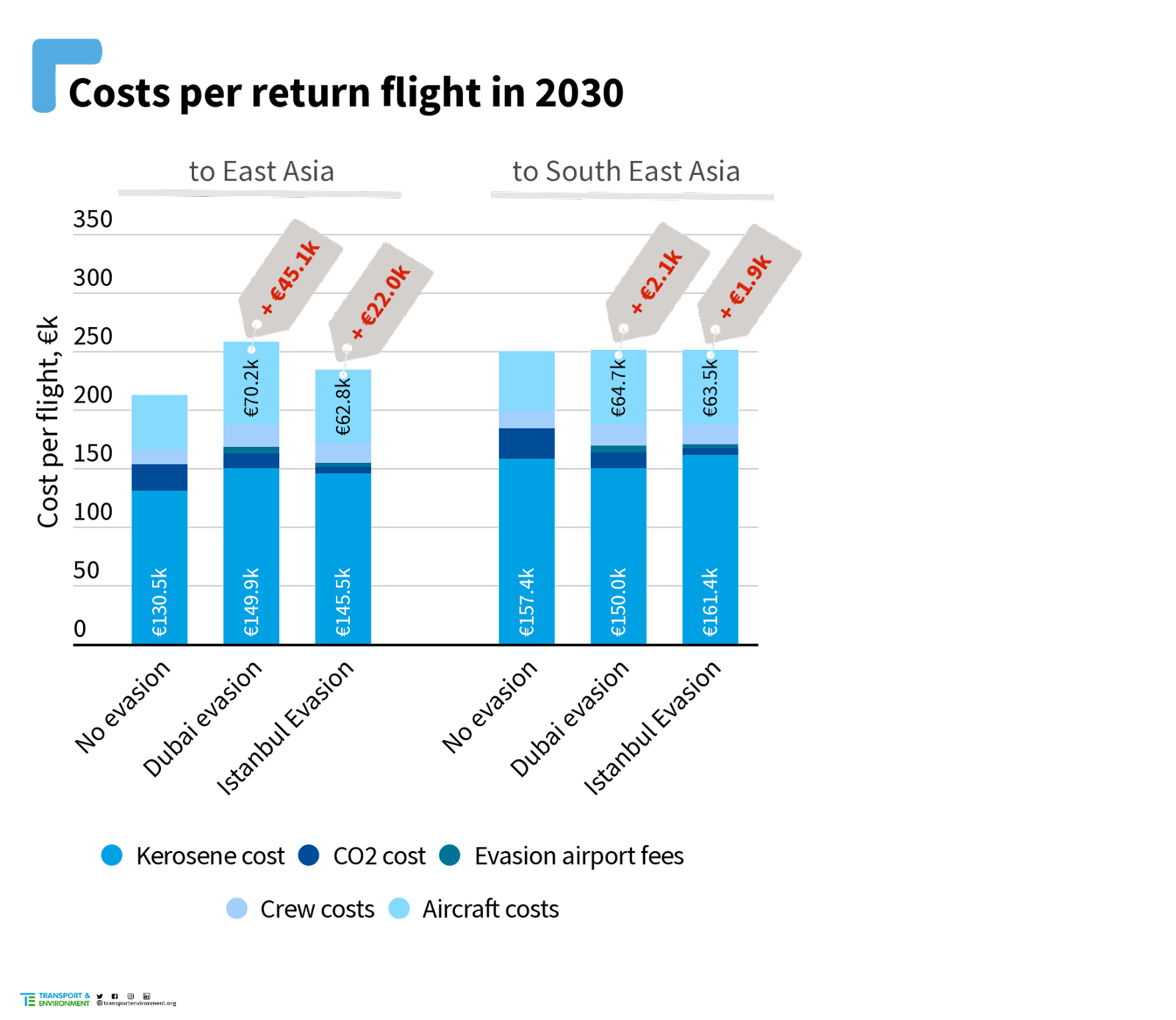To address the aviation sector’s growing climate impact, the European Commission has proposed to reduce aviation emissions by mandating the use of cleaner fuels (through ReFuelEU) and also by putting an effective price on CO2 emissions (through the EU Emission Trading System (ETS)).
EU airlines claim that regulations risk being avoided by parts of the industry and therefore leading to carbon leakage. Carbon leakage happens when airlines or passengers are able to avoid paying the extra costs of clean fuel or ETS allowances or by changing their behaviour, partially reducing the effectiveness of such a policy, as some emissions would not reduce but just be displaced to other regions.
T&E has investigated the potential for carbon leakage linked to direct flights stopping-over in non-EU hubs. It shows that the industry’s concerns regarding leakage from direct flights stopping-over outside of the EU are unfounded. The key conclusions are:
- For flights to East and South-East Asia, which are the routes most at risk of carbon leakage, there is no economic advantage for any direct flights to stop-over in Dubai or Istanbul, given the additional fuel, staff, and aircraft costs.
- There is low risk of carbon leakage for any direct flights from the EU27 to North America going via London Heathrow in the UK, as the UK is introducing similar climate measures – namely, UK ETS and SAF mandates.
- We generalised our findings for all non-EU destinations with a direct flight. This analysis shows that there is no financial advantage for evasion for any of the current long-haul direct flights originating in the EU27+UK.
- Additional stop-overs would also impact passengers, with additional time required to make a stop, combined with a ticket price increase, meaning airlines would see no economic advantage from stopovers and a hit to consumer demand due to the extra time required.

T&E concludes that there is no reason for the EU not to impose its climate measures on all departing flights from its territory. This will help mitigate the largest proportion of aviation emissions from extra-EU long haul journeys.
An upcoming study will investigate carbon leakage caused by switching a stopover from an EU airport hub to a non-EU hub.
Read more:
Position paper: ReFuelEU Aviation: T&E’s recommendations
Position paper: Aviation ETS: T&E’s feedback to EU Commission proposal


